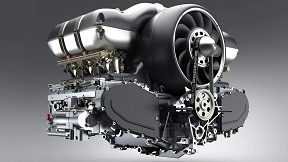Search Our Inventory

Replacement Engines
Used Rebuilt Remanufactured
Any Make And Model

Any Make And Model

When it comes to Japanese cars, two brands stand out in terms of reliability, innovation, and popularity: Toyota and Honda. In this comparison, we will delve into the advantages and disadvantages of each brand, and analyze their logos as well.
Toyota, known for its quality and durability, has established itself as one of the leading car manufacturers globally. Let's explore the advantages and disadvantages of owning a Toyota.
1. Reliability: Toyota vehicles are renowned for their exceptional reliability. With meticulous engineering and attention to detail, Toyota cars consistently perform well and have a long lifespan.
2. Fuel Efficiency: Toyota has made significant strides in producing fuel-efficient vehicles, offering models that cater to eco-conscious drivers. This advantage not only saves money on fuel costs but also contributes to a cleaner environment.
3. Safety Features: Toyota prioritizes safety by equipping their vehicles with advanced safety features. From anti-lock braking systems to airbags and collision avoidance technology, Toyota cars provide peace of mind on the road.
4. Resale Value: Due to their reputation for reliability, Toyota cars retain their value well over time. This advantage is particularly beneficial when it comes time to sell or trade in your vehicle.
1. Higher Cost: Compared to some competitors, Toyota vehicles can be slightly more expensive. However, this additional cost is often justified by the brand's reputation for quality and longevity.
2. Limited Performance Options: Toyota primarily focuses on producing practical and reliable vehicles, which may not appeal to those seeking high-performance cars or sports models.
Now, let's shift our focus to Honda and examine its advantages and disadvantages.
Honda, recognized for its innovation and cutting-edge technology, has become a popular choice among car enthusiasts. Let's explore the advantages and disadvantages of owning a Honda.
1. Fuel Efficiency: Similar to Toyota, Honda places emphasis on fuel efficiency across its vehicle lineup. This advantage not only saves money but also reduces carbon emissions.
2. Performance: Honda offers a range of vehicles that cater to those seeking a dynamic driving experience. From sporty models to performance-oriented engines, Honda provides options for drivers who prioritize performance.
3. Reliability: Honda vehicles are known for their dependability, with many models consistently ranking high in reliability studies. This advantage ensures a smooth ownership experience and minimal maintenance costs.
4. Innovative Features: Honda incorporates innovative features and technology into its vehicles, such as advanced driver-assistance systems, infotainment systems, and hybrid powertrains. These features enhance the overall driving experience.
1. Interior Quality: While Honda vehicles offer a comfortable and functional interior, some competitors may provide more luxurious or premium finishes.
2. Resale Value: Although Honda vehicles generally have good resale value, they may not retain their value as well as Toyota cars. However, this can vary depending on the specific model and market conditions.
Now, let's briefly analyze the logos of both brands:
The Toyota logo features three overlapping ellipses, symbolizing the unification of the hearts of the customers and the company. The logo exudes a sense of reliability, stability, and trust, reflecting Toyota's brand image.
The Honda logo comprises the letter "H" with a bold and sleek design. The simplicity of the logo represents Honda's commitment to innovation, efficiency, and forward-thinking.
In conclusion, both Toyota and Honda have their unique advantages and disadvantages. Toyota stands out with its exceptional reliability and safety features, while Honda shines in terms of fuel efficiency and performance options. Ultimately, the choice between these two Japanese car brands depends on individual preferences, priorities, and budget.